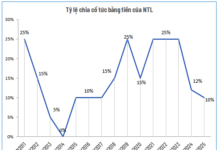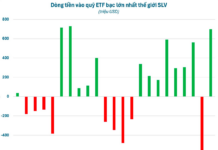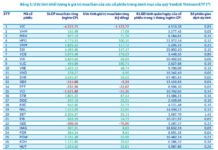“On Hold”: Individual Investors
According to statistics from the Vietnam Bond Association, in the first eight months of this year, the total corporate bond issuance reached nearly VND 215,000 billion, equivalent to 30% compared to 2020 and 2021. Corporate bond debt amounted to about VND 1.1 quadrillion, equivalent to 10% of GDP in 2023, much lower than the government’s target of 20% of GDP by 2025 and 25% by 2030.
 The Ministry of Finance’s draft has raised concerns among investors about further difficulties in this market.
|
Meanwhile, the Ministry of Finance is developing a project to amend and supplement a number of articles of the Securities Law. The draft supplementing provisions on private corporate bond trading has raised concerns among investors about further difficulties in this market. Especially for individual investors – a significant and indispensable component of the market – some conditions may create barriers to participation.
One of the most controversial points is the restriction on trading with individual investors. Clause 2 of Article 1 of the draft law amendment stipulates that professional individual investors are not allowed to invest in privately issued bonds if they do not meet certain conditions, including a minimum of two years of securities investment experience, a minimum trading frequency of 10 times per quarter in the last four quarters, a securities portfolio of at least VND 2 billion, and an annual income of at least VND 1 billion in the last two years.
While these conditions aim to mitigate risks for investors, they are somewhat stringent and may reduce market participation. They also impact individual investors’ appetite for corporate bonds. Restricting the types of assets that can be invested contradicts market trends, investor demands, and the legitimate rights of investors.
In addition, the draft also requires organizations issuing public bonds to have collateral or a bank guarantee when applying for a permit, except in cases where the credit institution offers secondary debt that meets the conditions to be counted as Tier 2 capital and has a bondholder representative as prescribed.
Hard to Meet Requirements
Mr. Hoang Kim Hoai, Director of Phuc Dien Land Company, believes that the corporate bond market is relatively small and somewhat stagnant, and there is a need to encourage investor participation.

Tightening rules on individual investors will hinder companies’ ability to successfully issue bonds and raise capital. |
“Raising the standards for professional investors while imposing stricter conditions on issuing organizations could make the corporate bond market even gloomier. This will hinder capital flow in the economy and reduce companies’ ability to raise capital,” said Mr. Hoai.
According to experts, these regulations are too stringent, making it challenging for many investors to meet the requirements to participate in the market. Mr. Hoai believes that requiring bond investors to have an annual income of VND 1 billion when the average income of Vietnamese citizens in 2023 is $4,284 per person limits many people’s access to corporate bond investment opportunities and diminishes the market’s appeal.
Economist Luong Duy Sinh also suggested that instead of imposing overly high criteria, it would be more appropriate to require individual investors to undergo short-term training courses to obtain certificates.
Mr. Sinh also warned that if the regulations are too tight, there won’t be enough individual investors in the market, leading to a shortage of buyers. As a result, companies may struggle to successfully issue bonds and raise capital.
|
Strict Conditions for Bond Issuance According to this regulation, to issue corporate bonds to the public, companies must complete the collateral and security registration process for the bonds before submitting their permit application. This process usually takes a few months, incurring additional costs and manpower while prolonging the capital mobilization process for business development. The requirement for a bank guarantee is also considered inappropriate, as commercial banks are not allowed to guarantee corporate bonds intended for purchasing shares, capital contributions, or debt restructuring. Moreover, they may be restricted by the credit room in a given year. In reality, corporate bonds are a form of capital mobilization. Requiring a guarantee for the public offering of corporate bonds that are not Tier 2 capital goes against common practices. |
Duy Quang
Corporate Bonds: Back on the ‘Fast Track’
The corporate bond market is finding its feet again, with a surge in capital raising and much-needed debt restructuring from previous issuances. The market supply is heating up with a diverse range of issuances across different corporate structures. However, bond buyers, especially individual investors, still face significant risks.







































